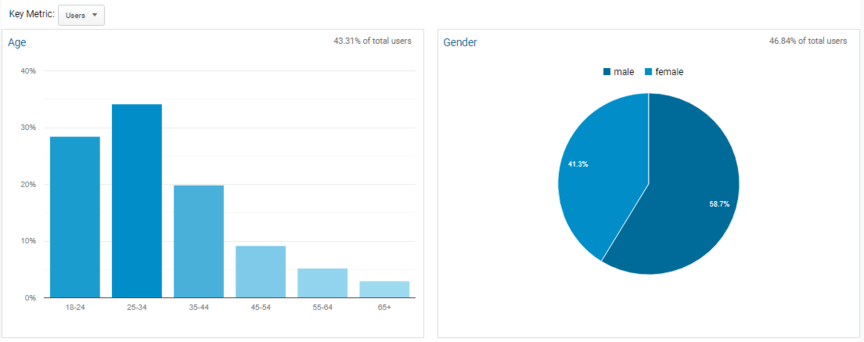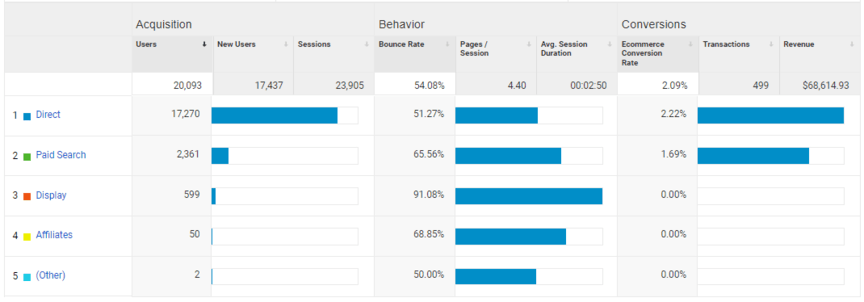-
 6 min. read
6 min. read
-
 Abby Fields
Abby Fields Branded Content Specialist
Branded Content Specialist
- Abby is a data-driven content marketer with certifications in inbound marketing and content marketing. She’s written hundreds of articles covering digital marketing topics — a few of her specialties include first-party data, marketing and data analytics, marketing strategy optimization, and SEO. When she isn’t writing or optimizing content, Abby loves to spend time reading the latest mystery novel, having movie marathons with lots of snacks, and jamming out to Shania Twain.
Definition: Customer data management (CDM) is the process of acquiring, organizing, and using customer data to better understand your audience and ultimately inform your marketing strategies.
Data is fundamental for implementing successful digital marketing campaigns that drive sales and revenue. You have more access to customer data today than ever before. But with that abundance of data comes the challenge of developing a data strategy and successfully leveraging it to drive results.
Keep reading to learn the ins and outs of CDM and how it can benefit your business. Plus, learn our top tips for creating an effective customer data strategy for your business.
Bonus: Want the inside scoop on all things digital marketing, data management, and more? Sign up for our newsletter, Revenue Weekly, to join over 200,000 other marketers who get their insider knowledge from our award-winning experts for free!
What is customer data management (CDM)?
Customer data management, or CDM, is the practice of collecting, organizing, and interpreting information from your customers. When you collect and analyze customer data, you learn more about your target audience and how they interact with your website.
You can then use this information to inform your marketing strategies. For instance, you might focus on a local search engine optimization (SEO) strategy to help more consumers in a specific region find your business online.
Data types to include in your customer data management strategy
You can collect a variety of data from your customers, including their:
- Name
- Email address
- Phone number
- Location
- Company name or industry
- Job title
- Interests
- Purchase history
- Age
- And more
When you manage your customer data effectively, you can notice trends and commonalities. For example, you might see that most of your customers are located in the same city and are around the same age.
Benefits of customer data management
So, now that you know the answer to the question “what is customer data management,” you might be wondering why you need it.
Here are three significant benefits of CDM:
- CDM provides a unified hub of essential customer data and metrics: With an effective CDM strategy, you say goodbye to collecting and analyzing data on multiple tools and platforms. Instead, you can store and interpret all of your customer data in a single unified hub for easy access.
- CDM helps you create more personalized website experiences: Data management helps you learn more about your target audience and which strategies resonate with them. As a result, you can implement personalized marketing messages that resonate with your audience to drive more sales and conversions for your company.
- CDM earns a higher return on investment (ROI): With CDM, you collect essential data that informs your marketing strategies. That means you can continuously optimize your campaigns to drive better results for your business, earning you a higher ROI.
CDM enables you to better understand your customers’ needs. As a result, you can implement marketing messages that increase customer engagement, conversion rates, and brand loyalty.
Customer data management best practices: How to create a successful customer data strategy
Are you ready to create a customer data management strategy that drives revenue for your company? We’ve got you covered.
Here’s how to create a customer data strategy in four easy steps:
- Consider investing in customer data management software
- Decide which data points and metrics you want to track
- Collect and store your customer data
- Analyze your data to identify trends
1. Consider investing in customer data management software
Before you start collecting data from your audience, you’ll need a place to store and organize it. Customer data management software can help you keep all of your data in one place for easy access and analysis.
One of the best data management tools is a customer relationship management (CRM) platform. A CRM platform enables you to collect essential information about your current and potential customers, like their contact details, demographics, and more.
Top tip: Are you looking for the best CRM software? Look no further than Nutshell. Nutshell is a user-friendly, affordable customer data management software that can easily help your business close more sales.
2. Decide which data points and metrics you want to track
When creating your data management strategy, it’s essential to focus on the most relevant data points and metrics.

If you try to collect every piece of information available, you might end up collecting more data than you can handle, making it tricky to analyze and interpret your information.
You’ll want to consider your business goals and objectives when deciding which data to collect. For example, you might want to increase your sales from pay-per-click (PPC) ads.
In this case, you’ll want to track data from the customers that converted after clicking on your PPC ad. You might want to collect demographic information and the keyword they searched to help you improve your PPC campaign for the future.
3. Collect your customer data
There are various ways you can collect customer data and information to leverage your marketing results.
You can collect data by:
- Implementing lead generation forms
- Using data tracking tools like CRM software or analytics platforms
- Promoting your brand on multiple channels, like social media and search engines
When you start collecting information from your audience, it’s essential to store it and keep it organized for easy access later. CRMs can store your data for you, or you can use a data warehouse to keep your information safe and secure.
4. Analyze your data to identify trends
After you’ve collected and stored your data, your next step is to analyze it. Data analysis helps you discover trends and actionable insights that you can use to inform your marketing strategies.
Data tracking tools, like Google Analytics or Nutshell enable you to view dashboards to easily discover data trends and commonalities. You can then use this crucial information to optimize your campaigns to drive more sales and revenue for your business.

For example, you might notice that a majority of your customers first discovered your business from your PPC ads on Google.
You can then focus on optimizing your PPC campaign through strategies like conducting more keyword research or improving your landing page. As a result, you can help more potential customers discover your business when they search for your products and services online, boosting your sales.
Measuring the metrics that affect your bottom line.
Are you interested in custom reporting that is specific to your unique business needs? Powered by RevenueCloudFX, WebFX creates custom reports based on the metrics that matter most to your company.
- Leads
- Transactions
- Calls
- Revenue

Implement a revenue-driving customer data management strategy with WebFX
Do you want to implement a customer data strategy for your business but don’t know where to start? Are you finding it tricky to analyze and leverage your data to drive your desired results? WebFX can help!
WebFX is a full-service digital marketing agency specializing in helping businesses manage their customer data effectively to implement strategies that boost revenue.
With our completely “done-for-you” digital marketing services, our experienced team will take care of managing and interpreting your customer data so you can get back to your other business tasks.
Partner with the agency behind over $10 billion in revenue today! Chat with one of our strategists by calling 888-601-5359 or contact us online to learn more. We can’t wait to help your business grow!
-
 Abby is a data-driven content marketer with certifications in inbound marketing and content marketing. She’s written hundreds of articles covering digital marketing topics — a few of her specialties include first-party data, marketing and data analytics, marketing strategy optimization, and SEO. When she isn’t writing or optimizing content, Abby loves to spend time reading the latest mystery novel, having movie marathons with lots of snacks, and jamming out to Shania Twain.
Abby is a data-driven content marketer with certifications in inbound marketing and content marketing. She’s written hundreds of articles covering digital marketing topics — a few of her specialties include first-party data, marketing and data analytics, marketing strategy optimization, and SEO. When she isn’t writing or optimizing content, Abby loves to spend time reading the latest mystery novel, having movie marathons with lots of snacks, and jamming out to Shania Twain. -

WebFX is a full-service marketing agency with 1,100+ client reviews and a 4.9-star rating on Clutch! Find out how our expert team and revenue-accelerating tech can drive results for you! Learn more
Try our free Marketing Calculator
Craft a tailored online marketing strategy! Utilize our free Internet marketing calculator for a custom plan based on your location, reach, timeframe, and budget.
Plan Your Marketing Budget
Table of Contents
- What is customer data management (CDM)?
- Data types to include in your customer data management strategy
- Benefits of customer data management
- Customer data management best practices: How to create a successful customer data strategy
- Implement a revenue-driving customer data management strategy with WebFX

Proven Marketing Strategies

Proven Marketing Strategies
Try our free Marketing Calculator
Craft a tailored online marketing strategy! Utilize our free Internet marketing calculator for a custom plan based on your location, reach, timeframe, and budget.
Plan Your Marketing Budget
What to read next





